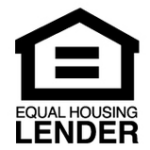- A down payment is the amount of cash you pay upfront on a large purchase, like a home or car.
- Lenders may require down payments from 0% to 25%, depending on several factors, including the loan type and the borrower’s credit profile.
- Doctor mortgages can help healthcare professionals purchase a home with a smaller down payment, no PMI, and more flexibility on employment and debt-to-income ratio.
When it comes to buying a house, one of the biggest hurdles is coming up with the down payment. Many homebuyers wonder how much they need to save for a down payment, as it can have a significant impact on their ability to secure a mortgage, the interest rate they qualify for, and their monthly mortgage payments.
What is a down payment?
A down payment is the amount of cash you pay upfront on a large purchase, like a home or car. It is calculated using a percentage of the total purchase price, and most buyers will take out a loan to finance the remainder of the purchase.
What is a typical down payment?
Lenders may require down payments from 0% to 25% of the purchase price, depending on the loan type and the borrower (their credit score, debt-to-income, and how they will occupy the home).
How much do I need for a down payment based on my loan type?
Down payment requirements can vary greatly based on the type of mortgage. Let’s take a look at how conventional, FHA and doctor mortgage down payments differ.
Conventional mortgage
Conventional loans are mortgages from private lenders that aren’t government backed. These loans require as little as 3% down (for first-time home buyers) and up to 20% down (for investment purchases).
With a smaller down payment (less than 20% down), the buyer will often need to pay for private mortgage insurance, which can vary from 0.5% to 1% of the total loan amount per year.
Definition: Private mortgage insurance (PMI) – a type of mortgage insurance typically required for conventional loans with greater than 80% loan-to-value. It protects the lender if you stop making payments on your mortgage.
FHA mortgages
FHA mortgages are loans that are insured by the Federal Housing Administration (FHA) that are designed to help first-time homebuyers or those with lower credit scores or income levels. FHA mortgages typically require a down payment of 3.5% of the purchase price of the home.
For a $200,000 home, the down payment would be $7,000. However, it is important to note that similar to conventional loans, borrowers will need to pay for FHA mortgage insurance, which can add to the overall cost of the loan. These loans offer greater flexibility in terms of credit score and debt-to-income requirements.
Doctor mortgages
Doctor mortgages are specialized loans that are available to professionals, including physicians, dentists, and veterinarians. These loans are designed to help healthcare professionals purchase a home with a smaller down payment, no PMI, and more flexibility on employment and debt-to-income ratio.
The down payment requirement for a doctor mortgage can vary depending on the lender, but it is typically around 5% to 10% of the purchase price of the home. Some doctor mortgage lenders offer 0% down payment options.
What are the benefits of making a large down payment?
- Smaller monthly payments – The higher the down payment, the lower the monthly payments a buyer will have to make. If you are trying to purchase a $350,000 home, the difference between 3% down and 20% down at a 6.5% interest rate equates to almost $400 less each month.
- Interest savings over time – Not only will your monthly payments be less because of a larger down payment, you will also pay less for the mortgage overall. For the same priced home, you will save almost $60,000 in interest over the course of a 30-year mortgage.
- No PMI – Depending on loan terms and down payment amount, you may be able to skip the additional monthly cost of private mortgage insurance, or reduce the amount required.
- Better terms – With a bigger down payment, a lender may offer you lower rates, or you may qualify for a higher purchase price.
What are the drawbacks of making a large down payment?
- Stretching your savings thin – Making a larger down payment to the detriment of your savings account can be a bad position for a new homeowner. It’s important to keep a portion of your savings set aside for emergencies, and cutting into that for a down payment could put you in need of money later down the road.
- Delaying your purchase – Saving for a large down payment can delay your time to enter the market. During this time, home prices and interest rates could be rising, which will limit your purchasing power.
- Limiting investments or retirement – Some homebuyers will forgo investments and retirement savings to accumulate a higher down payment. Solely saving for a down payment while forgoing other financial goals could affect your finances long term.
Mortgage Loans for Doctors
We understand the unique needs of doctors, because we are doctors ourselves. That’s why we have partnered with Primis Mortgage–to bring you excellent service in every step of the mortgage process. We all work together to help you purchase or refinance your home, on your schedule, answering any questions and making sure you have what you need to make the best decision.
This partnership aims to provide one of the best mortgages for doctors by offering competitive mortgage rates and a dedicated mortgage team that will be by your side, guiding you through each step from start to finish. You will benefit from a streamlined approach to financing with prequalification, progress updates and communication with your loan officer, all within a mobile app.
Need help finding a home or understanding home buying financially?
Finding your dream home or the right mortgage to finance your dream home can be difficult, but a team behind you can make it a little easier. Our Build Your Team program can get you connected to real estate agents and financial advisors to help you throughout the process. Get connected for free by visiting our page here.
The information and advertised terms, including interest rates, are from Primis Mortgage Company (www.nmlsconsumeraccess.org NMLS# 1894879; Equal Housing Lender). Mortgage applications can only be submitted in those states that Primis Mortgage is approved to lend. Panacea Financial is not a mortgage lender in any transaction and does not make mortgage loans, mortgage loan commitments or lock-rates related to mortgage loans. All credit decisions for mortgage loans, including loan approval and the conditional rates and terms offered, are the responsibility of Primis Mortgage Company and will vary based upon the loan requested, the borrower’s financial situation, and criteria determined by Primis Mortgage Company. Not all consumers will qualify for the advertised rates and terms. All information provided is subject to verification. Other terms and conditions may apply. Panacea Financial does not guarantee that Primis Mortgage Company will make you a conditional loan offer and nothing herein or on this website is considered a commitment to lend. Panacea Financial is a division of Primis Bank and Primis Mortgage Company is a subsidiary of Primis Bank.






